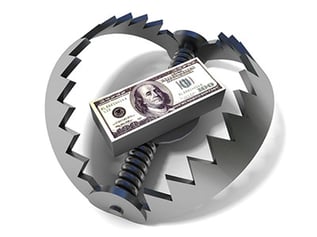 If you are under full retirement age (FRA), there is a limit to what you can earn before some or all of your benefits are withheld.
If you are under full retirement age (FRA), there is a limit to what you can earn before some or all of your benefits are withheld.
This is true whether you are receiving Social Security Retirement or a Survivor benefit. Once you reach FRA, you can make as much as you want. It's important to note, this is not a tax. If the earnings penalty applies to you, Social Security will adjust your benefit formula at FRA to treat the months that you did not receive a check as if you had not elected benefits for that month.
What is considered income?
If you are employed by someone else only wages are considered earned income and would apply to the earnings test. Those who are self employed, only net earnings are considered. It is important to note, employee contributions to a pension or retirement plan are included in the employee's gross wages. Income that is not counted as earnings include:
- Government benefits
- Investment earnings
- Interest
- Pensions
- Annuities
- Capital Gains
Self employment income is counted during the year in which the earnings are received while W-2 income counts when it was earned.
How much can I Earn?
If you are below full retirement age, Social Security will deduct $1 for every $2 you earn above the exempt amount. In 2016 that amount is $15,720. This applies to all years leading up to the year in which you attain your full retirement age. If you turn age 66 in 2016, the exempt amount increases to $41,880 and $1 will be withheld for every $3 you earn above the exempt amount.
Sam files for Social Security January 2016 and his payment will be $800 a month ($9600 per year). During 2016 he plans to work and earn $22,120 ($6,400 above the $15,720 limit). Social Security will withhold $3,200 of his benefits ($1 for every $2 earned over the limit). From January 2016 through April no payment will sent. Starting May Sam would receive his first payment of $800.
Special Rule
For people who file for benefits mid-year and have already earned more than the exempt amount, the monthly earnings test is applied. For any month during that first year that you earn under the monthly exempt amount, you will receive your full benefit for that month, regardless of your earnings before you filed for benefits.
Jane attains full retirement age in June of 2016, so she can earn up to $41,880 from January - May of that year without being impacted by the earnings test. Jane expects to earn $30,000 from January - May and $40,000 from June - December. She will receive all payments for the entire year even though she earned more than the exempt amount. Once you reach FRA the earnings test no longer applies, so of the $70,000 that Jane earned that year, only $30,000 was considered for earnings test purposes.
Adjusting Benefits for the Earnings Test
Benefits withheld are not completely lost. At full retirement age your benefit is recalculated to account for the number of months you did not receive a benefit.
John elected benefits at 64 and his benefit amount was $1,748 (14.34% reduction on his full retirement age benefit of $2,041). Since he did not receive 12 payments due to the earnings test his benefit is adjusted as if he only elected 1 year early instead of 2. And John’s new benefit at FRA is $1,904.

The ability to run these calculations and find the best possible election strategy is obviously incredibly important to all your clients who expect to work between 62 and full retirement age. The earnings test can have a major impact on your election strategy. Social Security Timing only incorporates the Annual Earnings Test, not the Monthly Earnings Test. If you have any questions on the Earnings Test, call 1.877.844.7213.





